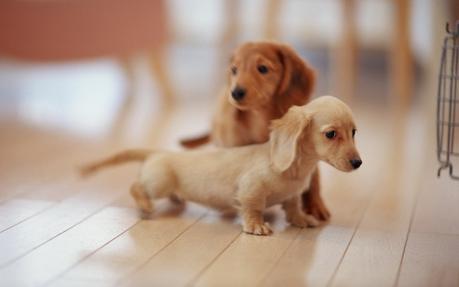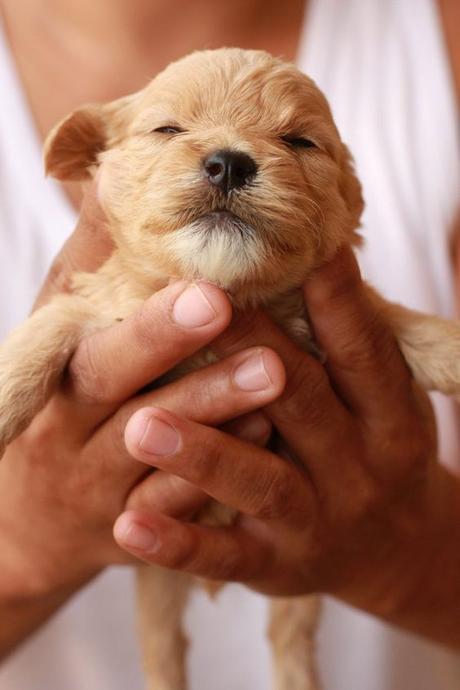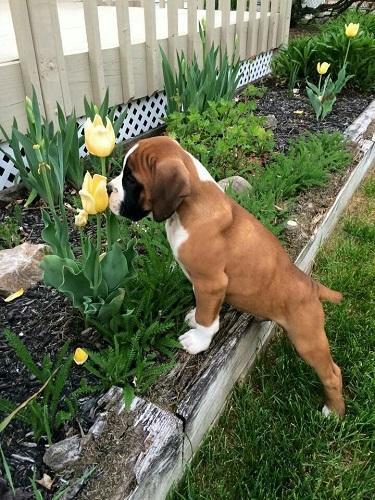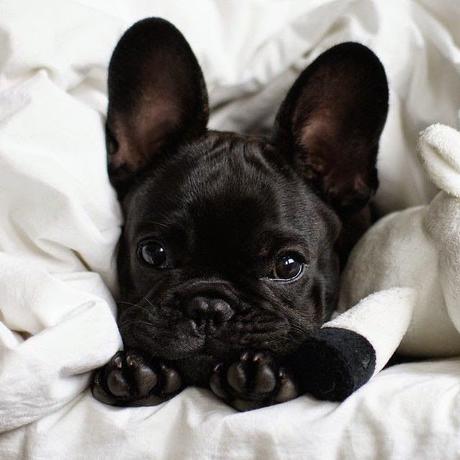Thinking about getting a puppy or a full-grown dog? You’re not alone. So are millions of other people, and with good reason. A dog’s companionship, loyalty, and compassion are beautiful things. Even if you haven’t owned a dog before, you’ve probably seen that bond between canine and human in other places. Maybe that’s what made you want to get one for yourself. How could you not want a dog, when you’ve seen firsthand how rewarding it is?

All information about puppy and dog FAQ – Updated Jan/2017
The fact remains, though, that it’s a big responsibility. If you’ve never trained a puppy before, or adopted an adult dog and cared for it by yourself, you might not know where to start. It might all seem a little bit overwhelming.
The good news: That’s where this article comes in.
In it, we’ll do our best to answer the most common questions we see related to dog and puppy care. We won’t be able to cover everything, but maybe after reading this you’ll feel a bit more prepared for the challenges that come with raising a dog. After all, being informed is half the battle! So let’s see puppy and dog FAQ:
What are the basics of taking care of a six-week-old puppy?

This is a good first topic to cover, since plenty of people want puppies but have no idea how important those first few months of owning one are. During this time, you teach them how to live in your home, build a positive relationship, and make them feel loved and comfortable. This will set the foundation for how your relationship with your dog is later down the line, so you need to know what a young puppy’s needs are. We’ve outlined them for you here.
Have the right supplies, and make them a home base
A young puppy will need a crate, food, bowls for food and water, a leash, a bed, a collar, and some bags to collect their waste in. We’re sure you want your dog to have everything they need, so make sure you provide all the basic supplies that are important for keeping him or her happy! Be sure to ask your vet about how often to feed your particular dog, because every breed is different. Another good thing to do: set aside a “safe zone” for your puppy before you bring them home. They’ll need a familiar place they can go to if the stress of being in a new home gets difficult or overwhelming. Keep food, water, toys etc. in this room, so that they feel comfortable in it, and give them a little space. They should warm right up to this area in no time.
Be consistent in training
If you have a family, make sure everyone knows to encourage or scold your new puppy consistently. When too many people send different messages about discipline, it can be very confusing for your pup. Make sure they know what’s off limits, and what they deserve praise for. And if you have kids, tell them to let the puppy rest for a while. Sometimes children are so excited about their new friend that they forget to give them time to relax!
Have a “potty area”

One of the most important things for a puppy to learn is where and when to go to the bathroom. Be sure to take them to a designated area that you’ve set aside often. Tell them to go, and give enthusiastic praise if they do go to the bathroom. If you build a consistent routine, your puppy will be less likely to go in places you don’t want.
Teach them to be okay with being alone
Puppies can get anxious and destructive if they’re home by themselves, so they need to know how to handle your absence. Make quiet moments with their chew toy part of their daily routine, between play periods. Putting them in their crate during these times can help them get used to relaxing, and soon they’ll be fine doing this while you’re out of the house.
How long can you leave a dog alone?

If you have a puppy, they’ll need pretty constant supervision and company. Two hours is about the longest amount of time a puppy should be home alone. After all, they’re probably used to having their mother with them at all times, and maybe some of their siblings. They need this kind of support and stimulation to grow into healthy adults, so please try your best to give it to them.
An adult dog is a little different. If they’re well-trained, you can expect them to tolerate being left alone for about 6 hours a day. They’ll need to go to the bathroom and interact with you too, though, just less than a puppy would. Help them learn that you can’t always be home with them, and if they adjust to this well you’ll have nothing to worry about. Be sure to give them lots of exercise, love and attention while you’re around, so they can adjust to when you’re gone better!
Why has my dog been eating rocks?
Believe it or not, we’ve seen this question come up pretty frequently. There are several reasons a dog might eat rocks. If they’re a puppy, they might just be exploring the world; like human babies, they do this with their mouths. That doesn’t mean you should let them swallow rocks, because it can be dangerous if rocks get stuck in a dog’s digestive tract.
Eating rocks in adult dogs or puppies can also be a sign of a medical condition, like diabetes or a nutritional deficiency. If you feel like you’ve repeatedly tried to stop this behavior and your dog isn’t listening, pay a visit to your veterinarian. They can help you find out if there’s a medical reason for your dog’s bad habit.
When do dogs stop growing?
This depends on the size of your dog. A small breed of dog will probably be done growing by around 12-15 months. Medium-sized dogs will be at their full weight by 2 years, and fully grown by around 18 months. Finally, big dogs (i.e. Great Danes, Mastiffs) are usually done growing by 18 months, just like the medium-sized breeds. However, they can take a while (up to 3 years) to fill out in weight.
How big will my dog be?
Again, this depends on the type of dog. You can estimate how much your dog will weigh when fully grown by looking at the breeds of its parents, the size of its paws, and how much weight it gains per week. There are online puppy weight calculators that can help with this process.
Why does my dog lick my other dog?
If your new dog or puppy does this, it’s a way of saying hello. It shows the other dog that he or she means no harm to them, and wants to possibly be friends. The other dog is dominant in this situation, and licking becomes a submissive gesture.
What if the dogs know each other very well? In this case, licking is a sign of trust and affection. It’s also calming for dogs to lick each other. Because they were licked by their mother when they were very young, engaging in this behavior as adults helps relieve their stress and brings back happy memories.
Finally, if a dog is licking another dog’s mouth, it can mean they’re trying to apologize for something. For instance, if one dog gets frustrated because the other is too energetic and irritating them, the offender might apologize by gently licking their face or mouth. If they get a lick back, then everything between them is settled.
Why do dogs bite their nails?
This, and excessive paw-licking, could be a sign of seasonal (or non-seasonal) allergies in your dog. Allergies are the most common reason a dog will engage in these behaviors. Their feet are itchy, so they’re trying to relieve that feeling by licking and biting. Look out for other signs of allergies, like runny eyes and nose, and make sure to talk to your vet about treatment options.
What happens when a dog is in heat?
When a female dog becomes mature enough and receptive to mating with male dogs, this is known as heat. It can be bad news for pet owners because it often comes with undesirable behaviors, like spraying urine in the house. If a dog hasn’t been spayed, she’ll go into heat approximately two times a year, or every six months, and will stay in heat for about 2-4 weeks. Here are some signs that could mean your dog is going into heat:
- Small amount of bloody discharge from the vagina (‘spotting’)
- Behavioral changes (vocalizing, spraying urine, restlessness)
- Appetite changes
- Higher body temperature
- Excessive licking of vulva, and enlargement of vulva
If you don’t want to breed your dog and/or deal with these behaviors, we suggest getting your dog spayed as soon as she’s mature enough.
Why do dogs wheeze?
A wheeze can be a really frightening sound for dog owners to hear. Why does it happen? There are actually a number of reasons. It could be, for example, a reaction to something in the air that is irritating the dog’s airway, like smoke, dust, or pollen. But it might not always be from airborne allergies like this – chemicals, pesticides, or bee stings can also cause a dog to wheeze.
Wheezing can also be a symptom of an upper respiratory infection or illness. Here are some common ones, and what their symptoms are:
- Kennel Cough: Sounds like a wheeze and then a hacking, dry cough.
- Bronchitis: A hacking cough, and gagging.
- Asthma: Might also come with coughing and sneezing.
Make sure you give your dog medications for heartworm prevention, too, especially if you live in an area with lots of mosquitos. Wheezing can be a sign of heartworm, which is dangerous and potentially fatal. Heartworm larvae live inside mosquitos, and if they get into your pet’s bloodstream, they’ll mature and grow into worms that block blood flow in the heart. It’s really important that you check for its possible symptoms and visit your vet regularly. Some signs of heartworm to watch out for besides wheezing are weight loss, coughing, and shortness of breath.
Well, there you have it: some of the most frequently asked questions about dogs that we’ve run across. Hopefully now you know a little more about what owning a dog will mean for you. Having everything outlined like this makes it all a little less overwhelming, doesn’t it?

